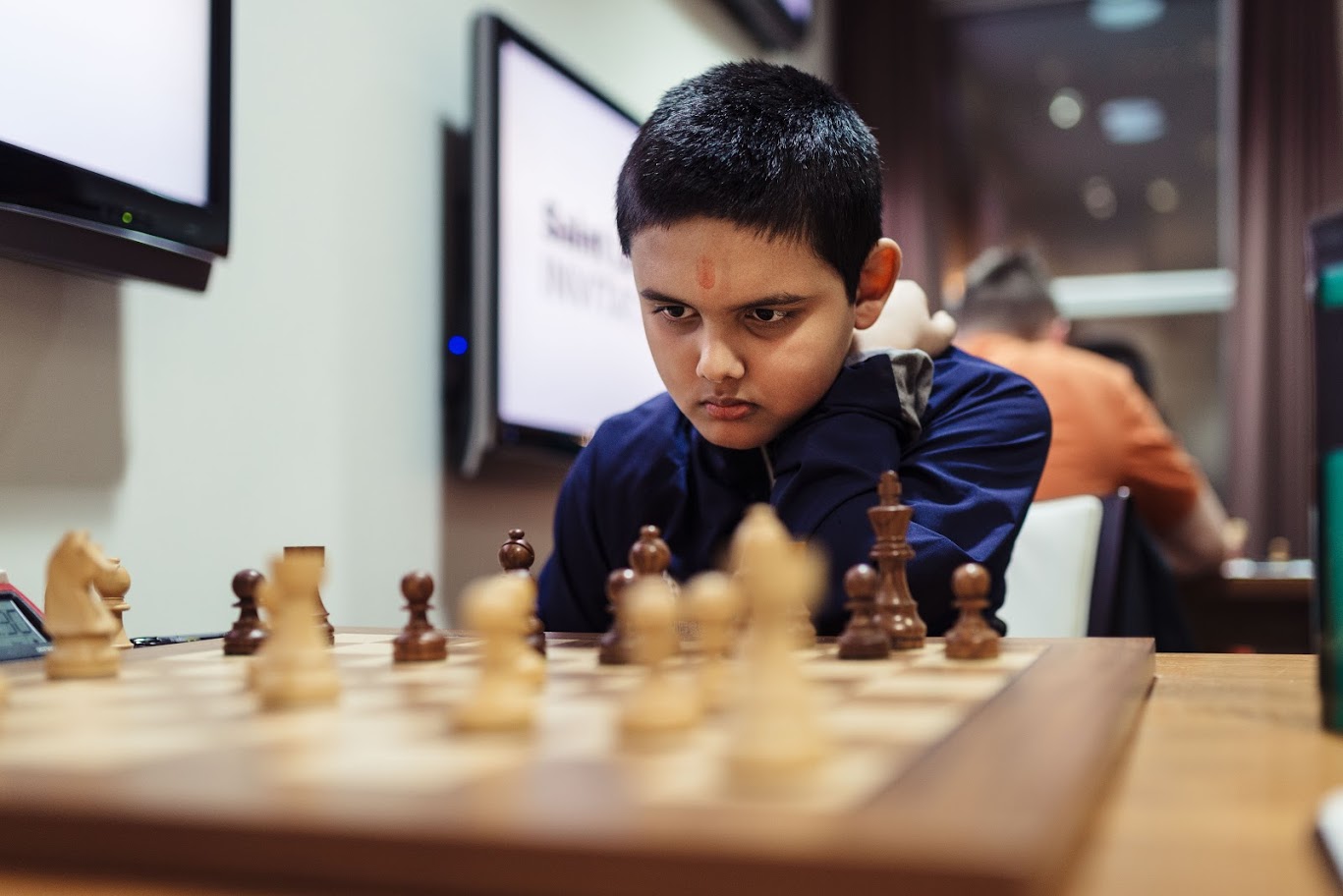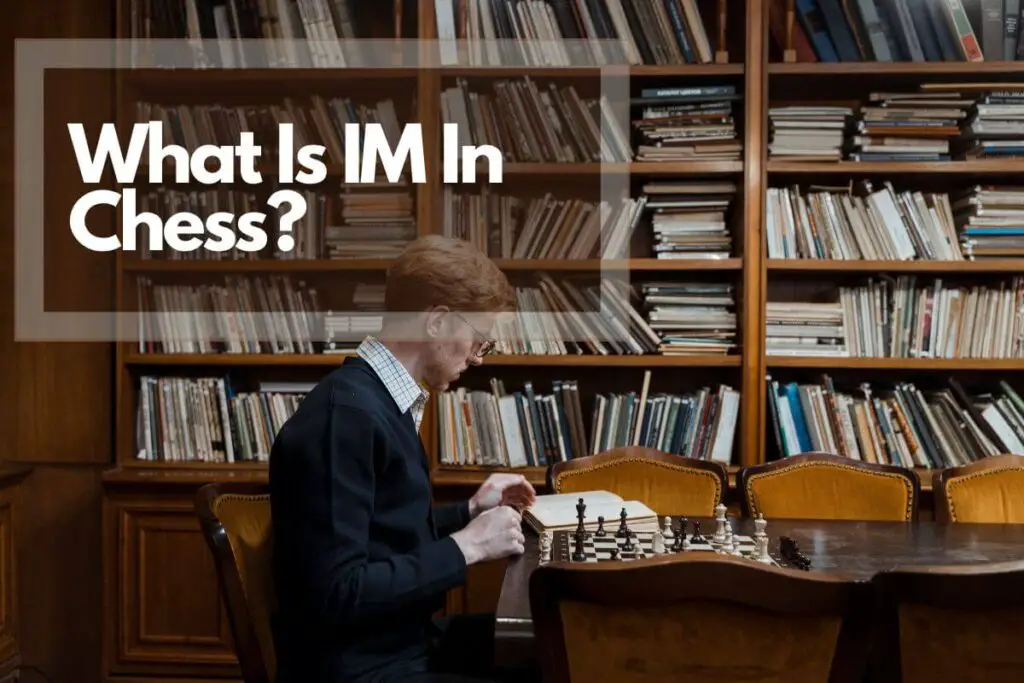There are different titles in chess awarded by FIDE, each having their owns ranks. You may have seen the abbreviation IM and may be wondering what it means or stands for?
In this article, we will discuss the meaning of IM and give you a few tips that can help you improve your ranks in chess. Here is what you should know:
What Is IM In Chess?
The abbreviation IM in chess means International Master. The IM title is the second highest title a chess player can attain and only applies to over the board chess. This abbreviation goes before the player’s name. For example if John Brown receives the IM title, then he will be called IM John Brown.
This title is awarded by FIDE which is the international governing body of chess. The international master title is valid for life from the date confirmed. However, in some cases the IM title can be revoked.
Use of a FIDE title or rating to subvert the ethical principles of the title or rating system may subject a person to revocation of his title upon recommendation by the Qualification and Ethics Commissions and final action by FIDE Council.
However, achieving the International master title is no easy feat. There are certain hoops and hurdles you need to go through to obtain this rank.
Here are the requirements for obtaining the IM title:
Requirements for obtaining International Master title
Requirement #1: Player must obtain 3 IM norms. To attain an IM norm, you need to score a performance rating of at least 2450 over 9 games in a tournament. Therefore the player must cover at least 27 games. IM performance is ≥ 2450 performance against opponents with average rating ≥ 2230. Title performance is a result that gives a performance rating as defined in 1.46 to 1.49 of the FIDE regulation code against the minimum average of the opponents, for that title.
Requirement #2: Player must achieve at some point a rating of 2400.
Requirement #3: The tournaments must involve titled opponents from a mix of different countries or federations other than your own. For an IM norm, at least 1/3 with a minimum 3 of the opponents (MO) must be IMs or GMs.
Requirement#4: Opponent’s minimum average rating for the tournament must be 2230.
Requirement#5: International Master can be attained through direct title. Direct title (automatic title) is a title gained by achieving a certain place or result in a tournament. On application by the player’s federation and confirmation by the Qualification Commission, such titles are awarded automatically by FIDE.
The international master title can be awarded to players if they finish well in certain international tournaments, provided that they achieve at least a rating of 2200. These include:
- 1st place in a Commonwealth, Francophone or Ibero-American championship
- 2nd place in Women’s World Championship
- Qualifying for the FIDE World Cup
- 1st place in a Continental over 50 championship, over 65 championship, or under 20 championship
- 1st place a World Championship for People with Disabilities
- 2nd or 3rd in the World Senior Championship, in both the over 50 and over 65 divisions
- 1st in the World Youth Championship (U18)
- 2nd or 3rd in the World Junior Championship (U20)
- 1st place in a Continental under 18 championship outright
- 2nd or 3rd in a Continental championship
- 1st place in a sub-Continental championship
- 1st in the World Youth Championship (U16) outright
You can learn more details from the FIDE title regulation book
Certifying IM Title
The Chief Arbiter must prepare and sign a certificate of title results achieved, and send it to the Rating Officer of the Organising Federation.
The Rating Officer or the President, having satisfied themselves that all of the information on the certificate is correct, shall countersign the certificate on behalf of the Organising Federation, and send fully signed copies to the player’s Federation and to the FIDE Office and the Chief Arbiter.
The International master certificate signed by the president of FIDE

Journey To Becoming An International Mater: The Blueprint
1. Change Your Attitude
If you want to achieve the international master title, you should go from a fixed mindset to a growth mindset. This means aiming for a higher title such as the grandmaster title, rather than focusing on achieving the international master title.
If you aim for a higher title like GM, then you would more likely achieve international master. The IM title would just be a stepping stone along the way.
Once you inprove your mindset and go for a bigger goal, you will stop worrying about achieving international norms in tournaments. Instead, the goal is to play the best possible chess that you can, learn from the games, and keep growing.
2. Take Risks
Try to play for a win and put pressure on your opponent as early in the opening to get an advantage. With the black pieces, you should take more risk and play dynamically. It would be very hard to defeat higher rated players without taking on a certain amount of risks.
3. Learn New Openings
You will be introduced to many different positions once you to start learning new openings. For example, if you’ve never played the King’s Indian Defense as black, then you should consider learning it even if you are a solid positional player.
You will be introduced to many new middlegame strategies. Moreover, you will be forced to play more aggressively with black and take a lot more risks by going for the attack.
This will improve your overall chess. It will be tough playing new openings in tournaments for the first time, but after a couple months, things will become easier.
You should also play a lot of blitz games in your training in order to gain as much experience with the opening. All in all, learning new openings is one of the best things you can do to improve your overall strength.
4. Learn The Endgame Positions
Last of all is to learn different endgame positions. Endgame positions can be challenging to solve, especially rook endgames like the Lucena position. However, the more challenging the problem is the more you’ll improve your creativity over the board.
Creativity is what defeats strong players. It’s the difference between a grandmaster and an international master. Just be careful not to exhaust most of your time studying endgames as most of these positions won’t occur in your actual games anyway.
Interesting Facts About IM’s
- There are roughly 3,800 active IMs in the world.
- The current record for the youngest IM is held by IM Abhimanyu Mishra, who attained the title at the age of 10 years, nine months and three days.
Youngest International Master Ever: Abhimanyu Mishra

Final Verdict
The first IM title was awarded by FIDE in 1950. Since then, the requirements for obtaining such title has changed considerably throughout the years. It can be challenging to obtain 3 IM norms, but with the right mindset and attitude, you can certainly achieve it.
Related Post: Ranking Chess Titles In Order


